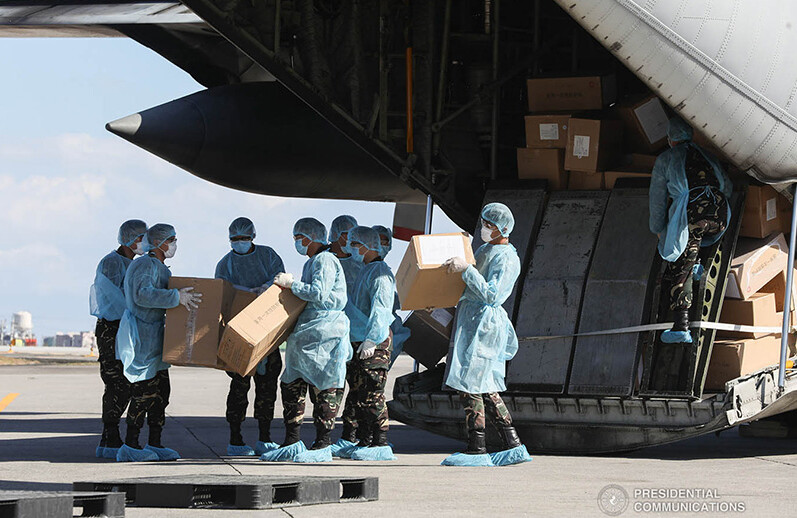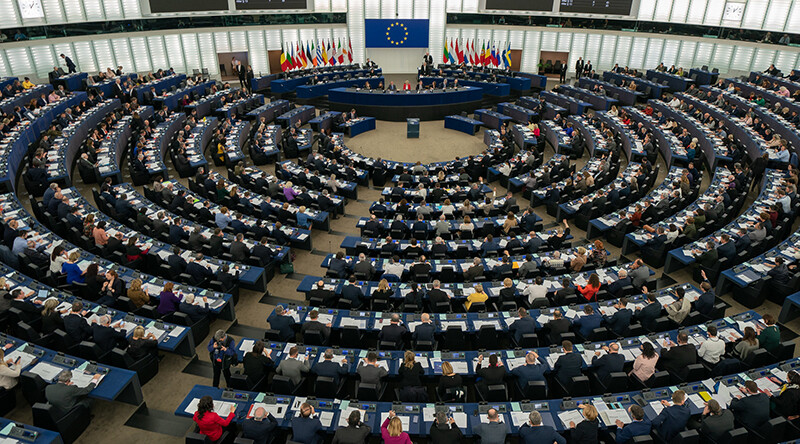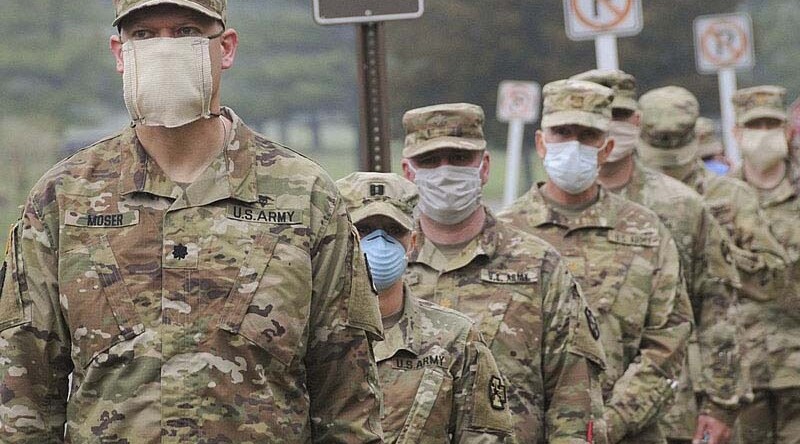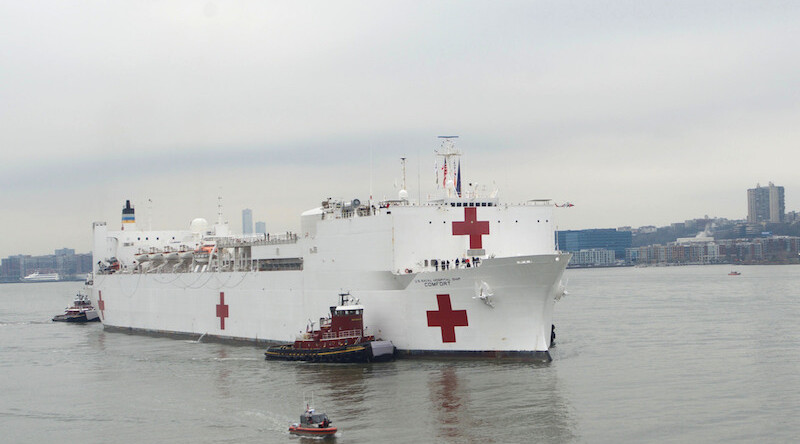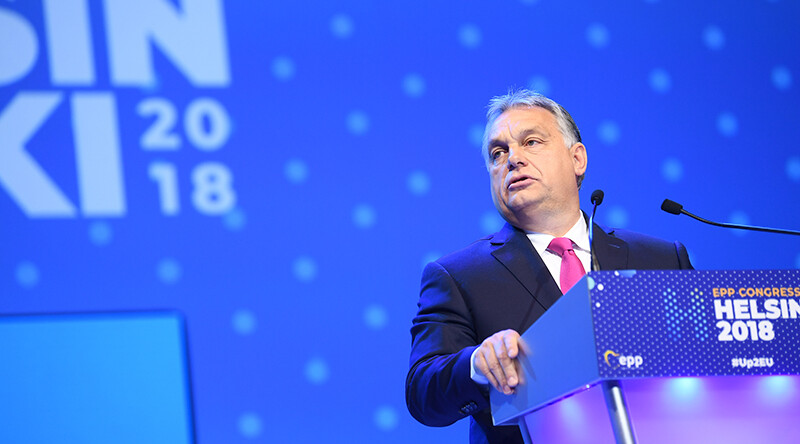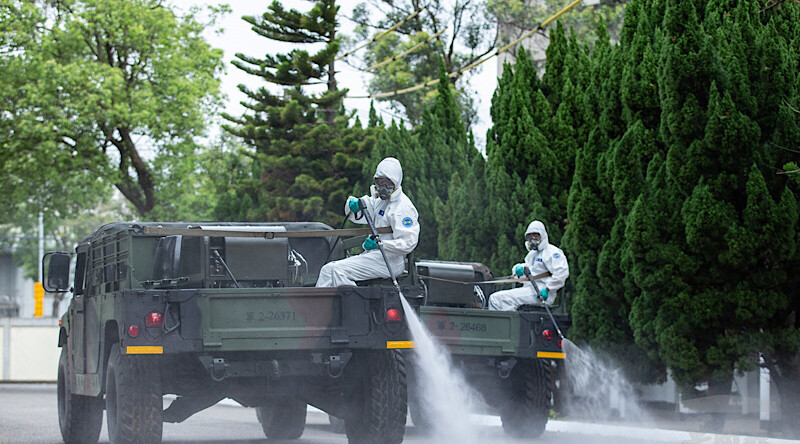What do China's handling of the pandemic and U.S. reactions to China inform us about the relations between these two major powers? Is the growing U.S. animosity toward China, fostered by the White House as well as both political parties, justified?
In response to the first reports about the coronavirus, China acted in the authoritarian way its governments have used with regard to troubling news for thousands of years. Local officials suppressed the news, because the central authorities did not want to hear bad news. Yanzhong Huang, the Council on Foreign Relations' senior fellow for global health, reported, "They shared information with their relatives, their friends. They were asked to shut up." By the end of December, the director of emergency medicine at the central hospital in Wuhan, Dr. Ai Fen, believed that the disease she and her colleagues had been treating was a novel coronavirus and that there was person-to-person transmission. She shared her suspicions with eight former medical school classmates on December 30, but she was reprimanded by the hospital, and the city government issued a public statement denying the existence of human-to-human transmission on December 31. Furthermore, on January 1, the local government claimed that pneumonia rumors were "causing adverse social impact." They called for the destruction of samples of the virus and took custody of Dr. Ai's eight former medical school classmates who had information about the virus, including Dr. Li Wenliang, who later died of the disease. In addition to Dr. Ai's observations, Yanzhong Huang asserts that the local government had unmistakable evidence of person-to-person transmission by early January, as some health care workers had come down with the virus. The refusal to acknowledge this fact allowed the coronavirus to continue spreading in Wuhan and to move to surrounding areas.
Once it became clear that more than a few cases were involved, the central government did act decisively and effectively. It put 46 million people on lockdown, quarantining 16 cities, to contain the virus. It did not reopen them until there were next to no new cases. While the first estimates of the number infected and dead were vastly understated (the death toll was increased to 4,632 on April 17, a jump of 1,290 lives lost, which is approximately 39% higher than the originally-reported figure of 3,342), China's rapid and cohesive response is widely credited with having avoided a much more calamitous outcome within its borders. Critics of China's initially inapposite response should note that the U.S.—which had the advantage of knowing the scope of the threat before it reached its shores, something China did not have—reacted much more slowly and much less effectively, causing many more casualties. Moreover, parts of the U.S. have started to reopen, even though the virus is not yet well-contained and the necessary levels of testing are not yet available.
The U.S. has criticized China for trying to shift the blame for the pandemic to the U.S. Many have quoted Zhao Lijian, deputy director and spokesperson of the Chinese Foreign Ministry Information Department, who suggested that the virus was brought to China by the U.S. Army. Recently, he tweeted, "It might be US army who brought the epidemic to Wuhan. Be transparent! Make public your data! US owe us an explanation!" Before that, U.S. Senator Tom Cotton repeated the unfounded conspiracy that the virus escaped a Chinese bioweapons lab. Since then, American politicians have played up reports from the intelligence community that the virus may have come not from a Chinese wet market, but from a lab, where a worker seeking cures for various diseases became infected and proceeded to infect others. However, medical experts have stressed that, in either case, the virus was "natural," that is, not manufactured, not made as a weapon to harm others. These and other mutual recriminations led to an increase in nationalism in China and, in the U.S., to racist attacks on people of Asian descent.
Chinese scientists were the first to fully map the DNA of the virus. Far from monopolizing this data, allowing Chinese laboratories and drug companies to gain a major leg up in developing cures and vaccines, they published the data. Scientists in the West expressed their appreciation, as this publication enabled them to rush forward in their quest for cures and vaccines. "Potentially really important moment in global public health-must be celebrated, everyone involved in Wuhan, in China & beyond acknowledged, thanked & get all the credit," tweeted Jeremy Farrar, the head of the research charity Wellcome Trust, in London. He added, "Sharing of data good for public health, great for those who did the work. Just needs those incentives & trust."
Much attention has been paid to what must be called coronavirus diplomacy. It concerns the many millions of very sought-after medical supplies, masks, and other personal protective equipment (PPE) that China has shipped to many nations but not to others. These differences have led to quite a bit of criticism. Before I go into this a great deal, I need to briefly digress into ethics. Ethicists often evaluate behavior, asking whether it is self- or other-oriented, egotistic or altruistic. They often find that altruistic acts have some "impure" motives, like seeking a tax deduction, fame, or appreciation. Hence, many conclude that true acts of altruism are very rare and all behavior is basically self-serving. I have joined others who point out that, in evaluating the moral standing of an act, one must take into account not only the intention but also the consequences. Thus, a person may be motivated by his desire to show off, but it still makes a great deal of difference if this motive led him to, say, donate a kidney—or try to eat more hot dogs than others.
China's sizable medical donations, to nations in desperate need of these supplies, were not driven by pure altruism. China did ask for something in return, albeit mainly in terms of having its gifts acknowledged. China could have demanded much more consequential concessions, such as recognition of Taiwan as a province of China, in exchange for these desperately-needed supplies. Details follow.
Prior to the outbreak of the novel coronavirus, China manufactured 50 percent of the face masks used all over the world, and it is now churning out these necessary supplies at almost 12 times its previous rate. Between March 1 and April 4, China claims to have exported pandemic supplies worth more than $1.4 billion. China sent "20,000 masks, 5,000 protective suits, 5,000 medical goggles, 10,000 single-use medical gloves, and 10,000 shoe covers to Poland." To Greece, China sent "500,000 surgical masks and other medical supplies including protective equipment, glasses, gloves, and shoe covers." The Alibaba Foundation and the Jack Ma Foundation donated "100,000 masks, 50,000 test kits, and 5 respirators" to Mexico. China also donated approximately 2 million units of medical gear and supplies to Venezuela.
Western officials criticized these shipments. They pointed out that it is common practice for Chinese officials to tell the recipient that they must thank China for the gifts they were granted. "What is most striking to me is the extent to which the Chinese government appears to be demanding public displays of gratitude from other countries; this is certainly not in the tradition of the best humanitarian relief efforts," noted the Council on Foreign Relations' director of Asia studies, Elizabeth Economy. She continued, "It seems strange to expect signed declarations of thanks from other countries in the midst of the crisis." In a blog post, EU chief diplomat Joseph Borrell wrote that "there is a geo-political component including a struggle for influence through spinning and the 'politics of generosity.'" Additionally, he asserted that "China is aggressively pushing the message that, unlike the US, it is a responsible and reliable partner." It seems as though expecting that nations granted life-saving supplies will express some appreciation is not a very heavy-handed form of diplomacy. One also notes that the U.S. stopped sending medical supplies to all nations who used to receive them from the U.S. before the pandemic.
China has been criticized that some of the supplies it sends are not functional. The UK and Spain reported that Chinese test kits they received were defective. It turned out that these kits were purchased from Chinese manufacturers that were not authorized to make such products or to sell them. Moreover, in response, China rushed to introduce tighter quality controls across the board. A new rule requires "customs officers [to] inspect every shipment of masks, ventilators, and other medical gear before they leave the country." This led to a new criticism. Charter planes from the United States have sat empty in China for days. Millions of masks and thousands of ventilators have sat on factory and warehouse floors, sometimes for weeks, waiting for the inspections to be completed.
Amid the health crisis, American officials asserted that they are seeking to prevent challenges that may arise from other countries that may find it an opportune time to test U.S. resolve. Trump's national security adviser Robert O'Brien stated, "Let me be clear: It would be a mistake—a mistake with terrible consequences—for any adversary to attempt to do us harm during this health crisis, or ever, for that matter." Officials pointed out that Beijing has begun conducting operations in the South China Sea using various military aircraft, including an airborne early warning and control aircraft for reconnaissance missions. At the same time, the U.S. is carrying out almost daily reconnaissance flights up and down the China coast.
In mid-April, China sent aircraft carrier Liaoning and five other ships from its strike group through the Miyako Strait, between Japan's Ryukyu Islands and past Taiwan. The U.S. military was reported to have sent a U.S. Navy EP-3 reconnaissance plane close to Kaohsiung in Taiwanese airspace. About the same time, China sent a surveyor to the South China Sea, as part of a show of force in a months-long standoff with Malaysia over energy exploration in the area. The director of the Asia Maritime Transparency Initiative in Washington, Greg Poling, stated that the Chinese expedition included multiple militias and no less than six armed coast guard ships. In response, Bloomberg reports that the U.S. "sent at least two warships within some 50 nautical miles of the Malaysian ship." Three U.S. ships and an Australian vessel remained in the South China Sea.
The sending of military ships by both sides amounts to international theater, because after they leave, nothing of significance will change. Taiwan is still basically acting as an independent nation, not as a province of China; China continues to claim most of the South China Sea as its Economic Development Zone; most nations continue not to recognize the legitimacy of these claims, and so on.
The U.S. approach to China is, not surprisingly, affected not merely by the ways China conducts itself, but also by domestic politics. A New York Times headline reports: "A Key G.O.P. Strategy: Blame China." The subheading asserts: "Republicans increasingly believe that elevating China's culpability for spreading the coronavirus may be the best way to improve their difficult election chances," and the article begins with the following lines: "The strategy could not be clearer: From the Republican lawmakers blanketing Fox News to new ads from President Trump's super PAC to the biting criticism on Donald Trump Jr.'s Twitter feed, the G.O.P. is attempting to divert attention from the administration's heavily criticized response to the coronavirus by pinning the blame on China."
Trump's reelection campaign has released ads that seek to paint Biden as too lenient toward China. Last summer, Biden stated that China is "not competition for us," a comment that has faced criticism from the left and the right. Biden has since walked back his comment a bit, saying, "You bet I'm worried about China—if we keep following Trump's path." Recently, Biden has said that China poses a "serious challenge" to the U.S., and he has often criticized its abusive trade policies and theft of intellectual property. "We need to fight for fair trade policy. We have put to put our businesses on equal footing," Biden stated in a speech at Northwestern University's Kellogg School of Management. "This means aggressively enforcing our trade laws. Retaliation for those countries—like China—that illegally subsidize their companies. The rampant theft of American intellectual property— over $200 billion stolen by China alone." Biden told the Council on Foreign Relations that "the free world should come together to compete with China's efforts to proliferate its model of high-tech authoritarianism."
Progressive Democrats, as represented by Matt Duss, a foreign policy advisor for Bernie Sanders' now-suspended presidential campaign, are torn between being troubled by a China that is trying to export "an authoritarian capitalist system," and a concern about a "new Cold War." Actually, there is very little evidence that China is exporting its regime and considerable evidence that other nations are interested in it, because they saw the deterioration of democratic regimes even before the pandemic, as well as the poor model the U.S. is presenting. It seems as if the Democrats, though, refuse to be cast in the dove's role to the GOP's hawk, as far as China is concerned.
Before the pandemic, there were already strong trends that reduced public support for globalism and favored each nation's increasing reliance on its own government to attend to the matters at hand. Trump's election and the Brexit vote were the clearest manifestations of these trends. Populism also drove many other countries to act more nationalistically, in particular Poland, Hungry, Turkey, Russia—and China. In short, these trends undermined whatever measure of globalism existed in the two superpowers (the U.S. and China), Europe, and many other nations.
One could have expected that the pandemic would lead the nations of the world to pull together. The virus rushed across national borders as if none existed. There is a desperate, urgent need to find treatments, tests, and a vaccine, which could work for all people around the world. However, by and large the pandemic has led to more nationalism. Countries closed their borders, fearing that travelers would bring the virus to their shores or reinfect their citizens after they have largely won the mitigation battle. Nations competed over short supplies rather than allocating them on the basis of need. And national governments took the lead in managing the response to the economic collapse.
Nations concluded that they should no longer rely on other nations for supplies in general, and particularly for medication and medical equipment, and plan to increasingly have these materials produced in their respective lands. Domestic politics has favored nationalism and at least psychologically sparring with other nations, especially the U.S. with China and vice versa. True, China did gift and sell large amounts of needed supplies to various nations. And there has been a very high level of collaboration among scientists across borders. However, all said and done, the pandemic made the world much more nationalistic than it was, and it was already fairly nationalistic, far from a globalist community.
Where do we go from here? China, as I see it, has neither the capabilities nor the positioning to replace the U.S. as the world power (a thesis I supported in a 2017 book, Avoiding War with China), despite the vacuum that the U.S. has created by curtailing its international commitments and roles. China does seek respect from international communities, after centuries of humiliation. And it does seek much more influence in the nations and seas on its border in the Western Pacific.
If there is a change in the U.S. administration in November, the new president might be able to point to the need to fight the pandemic at home as a reason to move away from investing ever more resources in a military buildup. Of late, the buildup has largely focused on a possible war with China, a war which I hold can be easily avoided if China is allowed more elbow room in its own sphere. The new president might also be able to argue that the fight against the pandemic will benefit from more scientific and economic international cooperation, especially with China. However, given American domestic politics and the rising nationalism in China, it will not be an easy path to hoe.
